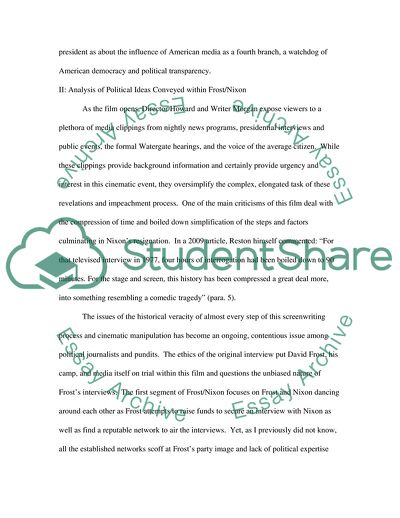Cite this document
(Political Ideas Conveyed within Frost/Nixon Movie Review Example | Topics and Well Written Essays - 1250 words - 1, n.d.)
Political Ideas Conveyed within Frost/Nixon Movie Review Example | Topics and Well Written Essays - 1250 words - 1. https://studentshare.org/politics/1752304-film-evaluation
Political Ideas Conveyed within Frost/Nixon Movie Review Example | Topics and Well Written Essays - 1250 words - 1. https://studentshare.org/politics/1752304-film-evaluation
(Political Ideas Conveyed Within Frost/Nixon Movie Review Example | Topics and Well Written Essays - 1250 Words - 1)
Political Ideas Conveyed Within Frost/Nixon Movie Review Example | Topics and Well Written Essays - 1250 Words - 1. https://studentshare.org/politics/1752304-film-evaluation.
Political Ideas Conveyed Within Frost/Nixon Movie Review Example | Topics and Well Written Essays - 1250 Words - 1. https://studentshare.org/politics/1752304-film-evaluation.
“Political Ideas Conveyed Within Frost/Nixon Movie Review Example | Topics and Well Written Essays - 1250 Words - 1”. https://studentshare.org/politics/1752304-film-evaluation.


